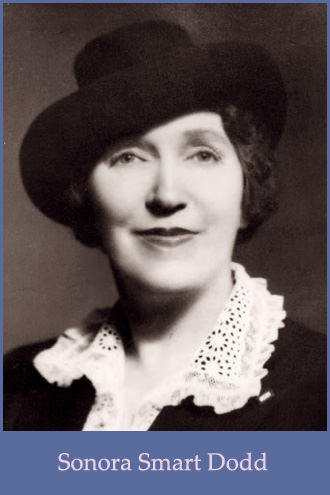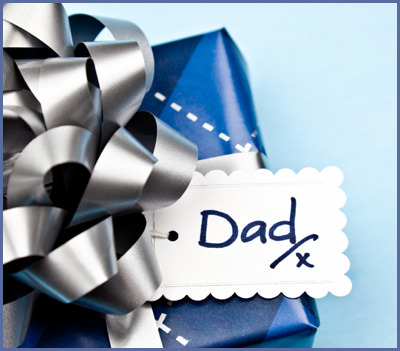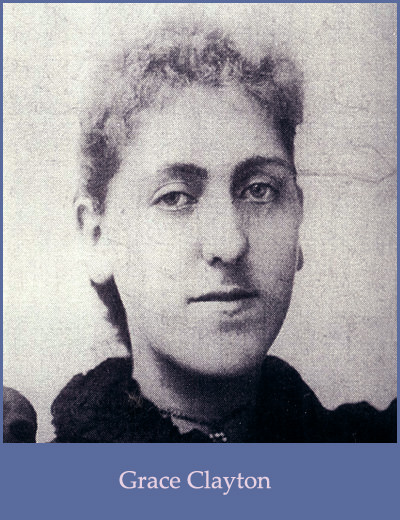
Father's Day is celebrated throughout the world as a way to honour and thank fathers and father figures. In the US, UK and many other countries we celebrate the special day on the third Sunday of June, however, some countries differ on this date.
Father's Day is meant to complement Mother's Day, the celebration of mothers, and typically families spend Father's Day and Mother's Day together. Traditionally fathers will receive gifts of thanks from their sons and daughters and the whole family will enjoy a Sunday dinner together as well as fun family activities such as playing games or going for a family walk.
But nowadays, as much as we enjoy celebrating our Dads on this special day, many of us are unaware of how this particular celebration started, and of the difficulties that it's originators witnessed.
Here we look at the origins and history of Fathers Day, of the dedicated campaigning of two noble women - Grace Clayton and Sonora Smart Dodd, and at some of the traditions that have developed today.
Fathers Day Origins
Unlike Mother's Day which can be dated back hundreds of years, Father's Day is a fairly recent concept. Many historians believe Grace Golden Clayton was the founder of the first Father's Day in Fairmont, West Virginia on July 5, 1908. A year and a half before, Monongah, a nearby town, suffered a mine explosion killing more than 360 men, over 200 of these men were fathers and left behind their widows and over 1000 sons and daughters.
Clayton was deeply moved by the incident and went to her Pastor, Reverend Robert Thomas Webb, of the Williams Memorial Methodist Episcopal Church South, (now known as Central United Methodist Church) initiating the idea of a special day for fathers to be honoured and remembered. Both Clayton and Webb had lost two children (not together) so they felt the grief of the mining families.
According to the Fairmont Times in 1979, Clayton had, at the time of the mining tragedy, said:
"It was partly the explosion that got me to thinking how important and loved most fathers are. All those lonely children and those heart-broken wives and mothers, made orphans and widows in a matter of a few minutes. Oh, how sad and frightening to have no father, no husband, to turn to at such an awful time."
Clayton chose July 5, 1908 to celebrate Father's Day, as this was the nearest date to her late father's birthday whom she missed terribly. However, Clayton's Father's Day did not take off... she was exceptionally unlucky for various reasons; the day was not promoted outside of the town, no public statement was made to the City Council and, most significantly, Fairmont held a huge July 4, Independence day festival with over 12000 people in attendance the day before.
The event had the largest gathering in the town's history and boasted the first sighting of a hot air balloon which gained significant press coverage. In addition, the town suffered the loss of a young girl who had been suffering from a critical illness that very night. Her family were dedicated church-goers in the town and so Clayton and the church decided not to go ahead with their proclamation of Father's Day. It was because of these unfortunate incidents that Clayton never received the credit she deserved for being the first person who tried to issue a Father's day. To this day Fairmont are proud of Clayton's efforts displaying a highway sign at the city's entrance stating: "Welcome to Fairmont - the Friendly City - Home of the First Father's Day Service, July 5, 1908".
One Woman's Mission
For many historians, however, the origins of Fathers Day are attributed to another American. Two years after Clayton's commentary on forgotten fathers, in 1910, a Washington woman named Sonora Smart Dodd publicly recognised the need for a Father's Day. To this day Dodd is known and recognised to be the first, and only, founder of Father's Day.

Having heard a Mother's Day sermon in church the previous year Dodd felt that fatherhood deserved recognition too. Having lost her mother at the age of 16 years old, Dodd was brought up, along with her five siblings, by her father William Smart, a Civil War veteran. Dodd was very passionate about the need for a Father's day and argued:
"A Father's Day would call attention to such constructive teachings from the pulpit as would naturally point out: The father's place in the home. The training of children. The safeguarding of the marriage tie. The protection of womanhood and childhood. The meaning of this, whether in the light of religion or of patriotism is so apparent as to need no argument in behalf of such a day."
Dodd took her Father's Day idea to her pastor Reverend Dr. Conrad Bluhm from the Old Centenary Presbyterian Church (now known as Knox Presbyterian Church), and he fully gave his support. They then approached the Spokane YMCA and the Ministerial Alliance with her idea and both backed her completely. With all their help the first Father's Day was celebrated in 1910.
Dodd had originally hoped the date for Fathers Day could have been celebrated on the 5th June, her father's birthday, but the pastors felt they needed more time to prepare, so instead the 19th June was chosen. Ever keen to mirror the traditions of Mother's Day, Dodd spent the day delivering Father's Day gifts to all fathers in the city that were too ill to leave their homes.
However, despite Dodd's efforts and even with the help from the YMCA, YWCA and churches it took years to make the day an official holiday. Mother's Day was met with true fervor; it was recognised in Christianity as an old religious tradition and was seen as a wonderful special day to pay thanks to mothers. Father's Day on the other hand, was seen by many, as a bit of a joke and the further it spread the more laughs it gained. Mocked by newspapers, people saw it as another excuse to fill the calendar with promotions and 'commercial' days.
A bill in 1913 urged Congress to officially recognise Father's Day but in 1916 President Woodrow Wilson was unsuccessful at convincing Congress who feared the day would be too commercialised.
Later Developments
Many years after this false start, in 1957, Senator Smith castigated her congressional colleagues and said:
"Congress has been guilty now for 40 years of the worst possible oversight... perpetrated against the gallant fathers... of our land. As a daughter, as a woman and as a United States Senator, I must say as strongly as I know how, that the conduct of Congress in this regard should cause us to hide our faces in shame... Either we honour both of our parents, mother and father, or let us desist from honoring either one. But to single out just one of our two parents and omit the other is the most grievous insult imaginable."
Supposedly, after Senator Smith's infamous words Father's Day was not forgotten in Congress. However, it took until 1966 for the first presidential declaration by President Lyndon B. Johnson, that credited fathers and assigned the third Sunday of June as Father's Day.
It was then in 1972 that President Richard Nixon made Father's Day an official legal national holiday proclaiming that the third Sunday in June was "an occasion for renewal of the love and gratitude we bear to our fathers."
It's worth noting that some people believe that Father's Day could have originated from the Pagan Sun worship, though little evidence suggests this to be true. Many pagans believed the sun was the father of the universe and due to the summer solstice taking place around the same time as Father's day, people believe there is a valuable link.
Father's Day Traditions

In 1910 a tradition was set, all sons and daughters would wear a rose to church; they would wear a red rose in admiration of a living father and a white rose to pay tribute to a deceased father. This is rarely upheld today, however, and many people will not have heard of this original gesture.
Today, people try and visit their dads on Father's Day and use it as a great excuse to gather the whole family together to celebrate the special day. Bought or handmade cards and Fathers Day gifts are either posted or hand delivered to dads. Schools and kids clubs will make Father's Day cards and gifts to highlight the significance of the day and encourage the child/father bond.
Popular gifts include ties, socks, slippers, hankies, luxury chocolate, dad's favourite drink, garden tools or DIY tools. Personalised gifts are very popular too such as a mug with "Best dad in the world" printed on the front. Other Father's Day gift ideas include humorous novelty items, sporty gifts or extravagant experience days such as a helicopter ride or racing car lesson.
Another tradition is to serve breakfast in bed for dad, for a real treat. Families gather around the dinner table and enjoy a Sunday dinner cooked by mother's or children- dad isn't supposed to lift a finger all day. Alternatively, it's also common to take father out for dinner to a pub or restaurant.


